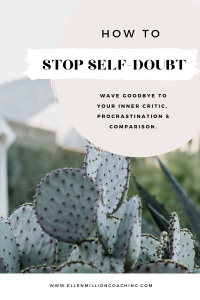3 Coaching Exercises To Increase Your Emotional Resilience
In this blog post I share 3 Coaching Exercises to help you increase your emotional resilience and get through the rest of this year empowered. The German version of this article was published on the lululemon Germany website. To read the article in German, click here.
2020 is a year in which little goes according to plan, in which uncertainty has become the new normal and in which for many, having less social interactions goes hand in hand with increased feelings of loneliness. All in all, this year isn’t exactly everybody’s darling.
Especially now as we are entering the dark winter time, it’s only normal that many of us are facing some challenging emotions. However, seen from the positive side, this year also gives us the opportunity to learn a skill for life, the skill of resilience. Learning how to manage one’s own emotions is one essential aspect of resilience.
For starters, what exactly is resilience?
Resilience is a term that is used in physics to describe how quickly after being exposed to a lot of pressure a material can find back in its original shape and form. Sounds familiar?
In relation to people, resilience describes the capability to get through difficult periods in life, also referred to as our ability to “bounce back” from tough times. The Fraunhofer Institute has additionally introduced the term of “bouncing forward”, which further considers how we can not only survive those times but furthermore, how we can continually adjust to them and even use them as an opportunity to grow.
The good news: resilience is not inherent
Luckily, resilience isn’t a trait that we are either born with or not. Instead resilience is a skill that each and everyone of us can learn, just like tying one’s shoes. This gives hope.
In the following I’m sharing 3 Coaching exercises with you that I use with my Coaching Clients in order to build up Emotional Resilience. Grab your journal and a pen and bring your unfiltered answers on paper.
STEP 1: Recognise Your Emotions
In fact not only positive emotions, but also negative emotions such as anger, jealousy, fear, grief or worry have their advantages. This might sound a little incredulous at first, but let’s take a close-up look at worry for example.
A certain degree of worry helps us to think ahead and avoid potential dangers. However, if we worry too much we have difficulty in staying focused and even the smallest decisions can get overwhelming.
In order to manage our emotions then, it is crucial that we first have access to ourselves. Only when we become aware of our own emotions, can we start processing them.
Coaching Exercise 1: How do I feel at this very moment?
STEP 2: Show Yourself Some Empathy
When faced with challenging situations many of us use this as an occasion to roll out the red carpet for our inner critic. We don’t know just what exactly expects us and therefore we oftentimes fall into negative thinking patterns such as “you are not good enough”, “you will never manage to do this”, “others are so much better at this than you”. In an endless cycle we drag ourselves down and to top things off, we even believe our inner critic! Hip hip hooray!
When faced with challenging situations many of us use this as an occasion to roll out the red carpet for our inner critic.
Dr. Kristin Neff, a researcher about the topic of compassion at the Texas University, identified that we are actually much more resilient and also happier, when we choose a friendly tone of voice with ourselves. (2) To first recognise how we speak with ourselves is a good starting point to enhance our emotional wellbeing, just as we would when speaking with a friend.
Coaching Exercise 2: How does your internal dialogue currently sound like?

STEP 3: Discover Opportunities
The psychologist and resilience-researcher Suzanne Kobasa discovered that resilient people do not consider challenges as problems but as opportunities. Instead of obsessing over a challenge with negative thoughts and energy, might this be a current pandemic or the traffic, it is much more helpful to face the challenge at hand with optimism, trying to see the positive side of it.
Now this isn’t always going to be easy and in some situations we have to let the feelings flow before we can access any positive perspective at all, and this is okay, too. Once you are ready to explore the silver lining, the following exercise gives some great food for thought. In the time of this pandemic this could for example mean that you get the opportunity to recollect yourself and reflect on what is really important to you in your career or business, or it could mean that you have more time available for video calls with friends and family.
Coaching Exercise 3: What are positive consequences of this current situation?
As Nelson Mandela already said ”The greatest glory in living lies not in never falling, but in rising every time we fall.” By being aware of our own emotions and the resilience exercised in this blog post, we can achieve that the getting up gets easier from time to to time.
To work 1-1 with me on enhancing your emotional resilience and “bounce forward”, send me an email on [email protected].
Sources:
- Dr. Florian Roth Fraunhofer Institute: https://www.isi.fraunhofer.de/de/blog/2020/resilienz-corona-krise.html
- Dr. Kristin Neff: https://self-compassion.org/
HERE WE GROW NEWSLETTER
Feed your inbox with news on self-leadership, personal development and good vibes.
Ellen Million
Ellen Million is a certified Leadership and Career Coach and Business Trainer on Self-Leadership, accredited by the European Mentoring & Coaching Council (EMCC). With a focus on empowering busy professionals, Ellen encourages her clients to slow down in order to speed up, integrating work and life seamlessly. She has worked with renowned brands such as On Running, lululemon, and NatWest, combining proven strategies with a personal approach to help individuals reconnect with their values, clarify their vision, and take bold action toward meaningful goals.
